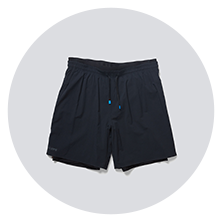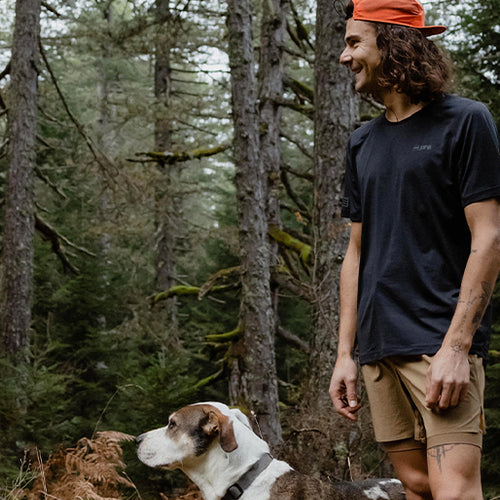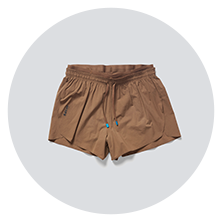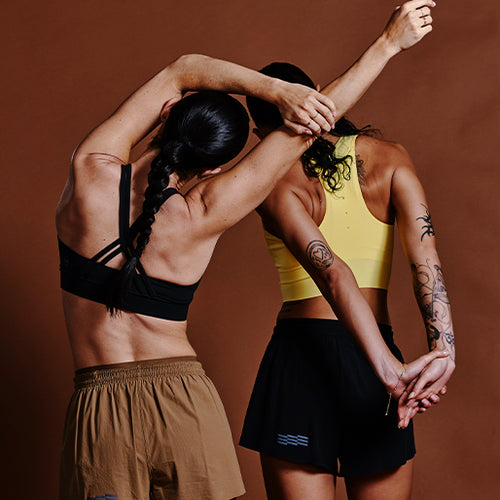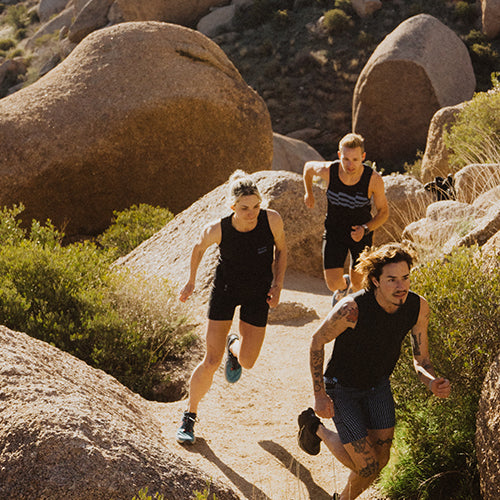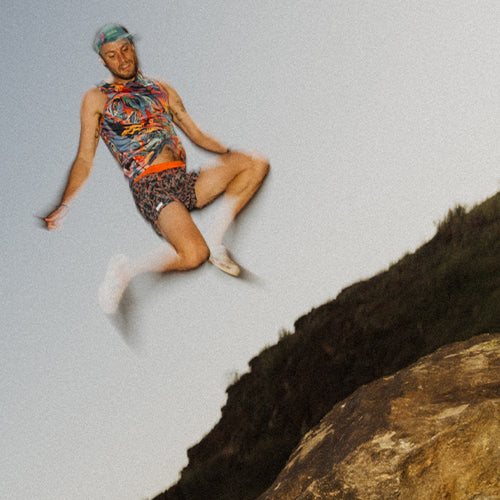Photos + Video: Ariel Robbins | Words: David Gleisner
For as long as they can remember, Cal Calamia has wanted to run.
As a child, Cal found an outlet for their boundless energy in a simple game called “run around” that involved… well, running around. In middle school, cross country was their first introduction to the competitive side of running. They followed this path all the way to college, but the pressure-fueled environment started to take a toll. Undue attention to Cal’s body exacerbated existing questions about their gender identity, and their lifelong desire to run faded.
After taking a year off, moving to San Francisco, and coming out as transmasculine and nonbinary, Cal reapproached running with a fresh perspective. Moving their body became affirming in a new way, and being seen on the streets of San Francisco brought added importance.
Getting back into competing, though, proved challenging. Many races confined gender categories to two narrow boxes, neither of which represented Cal’s experiences or identity. So, Cal fought for their right to run authentically, starting conversations with race directors around the world in an effort to expand inclusivity.
Cal has since competed in and won nonbinary categories in Bay to Breakers, the San Francisco Marathon, and the Chicago Marathon. This April, they will compete in the first ever nonbinary category of the Boston Marathon. Their fight to make space for every runner is ongoing, and we’re proud to support Cal in this essential work.
We recently sat down with Cal to learn more about the evolution of their relationship with running, their current priorities, and what they have in store in the future.

Janji: How did you first start running?
Cal: In 5th grade, the 7th and 8th graders from the middle school came to our school during lunch, and gave a pitch about how we should run cross country. I was like, ‘I like running around, I want to do the cool thing at the middle school,’ so my friend and I decided to do it together, and the rest is history. The funny thing is, after half a season, she was like, ‘I hate this’ and I was like, ‘This is the best thing I’ve ever done, I’m gonna do this forever.’
How did/does running make you feel?
I have a lot going on in my brain, I have a lot of energy, and running feels like the release of that energy in an appropriate way. I would say physically, it makes me feel strong. As a runner, being aware of how much my body can do, and how much it does do... what a gift that is to me and to my brain, to my mental health. It is nice to have that feeling of feeling capable, and feeling strong, especially when in other areas, that didn’t always feel like the case.
When did you start running competitively?
I did school cross country races, from middle school to high school into college. In college, my relationship with running was totally tainted by the dynamics of the team, and just the culture of being a Division 1 college runner. It’s really intense. One example I always give is we got body fat tested. They used skin calipers and clamped our skin and tested our body fat weekly. And if we weren’t where they wanted us to be, it was a huge conversation, and we were in trouble.
As I was starting to navigate my queerness, my own sexuality and my gender, everything felt uncomfortable: Some of the clothing, the gendered nature of sports, the attention on my body, coupled with the unhealthy culture around that. We were running in little briefs and sports bras, so it was just ugly, really. I was like, 'I hate running, I can’t do this anymore,' which was horrible! So I didn’t run for a year, pretty much at all. It just didn’t feel good anymore. My relationship with running sucked, so I wasn’t gonna do it just because I felt like I had to.
I had never seen another transmasculine person in my life until I moved to San Francisco, and the second I did I was like, 'Oh my god, that’s definitely me.' In a way that’s when my life really started, at least my life as it is now. And in feeling comfortable with myself and confident in who I am, I was able to find my way back to running.
What was it like coming back to running post-transition, once you had this new understanding of yourself?
Just literally euphoric. When I had my top surgery, I couldn't run right away. But the first time that I was able to run outside with no shirt, I was like, ‘Oh, now we’re talking.' Because now not only is this an experience that feels really good for me, but it’s doing something for perception. People who see my running are confronted with some of the things that I was confronted with.
And then taking testosterone, it’s like wait, woah, what am I actually capable of?
Obviously there’s a physical difference, but I wonder how much of your performance improvement also just happened because you feel more authentic.
All of those things are so tangled for me. I used to feel so tired, and I used to cry a lot. And it’s like, did the testosterone change me? Or is it that in having the gender-affirming care that I need, I don’t hate every day anymore.
SHOP THE COLLECTION

